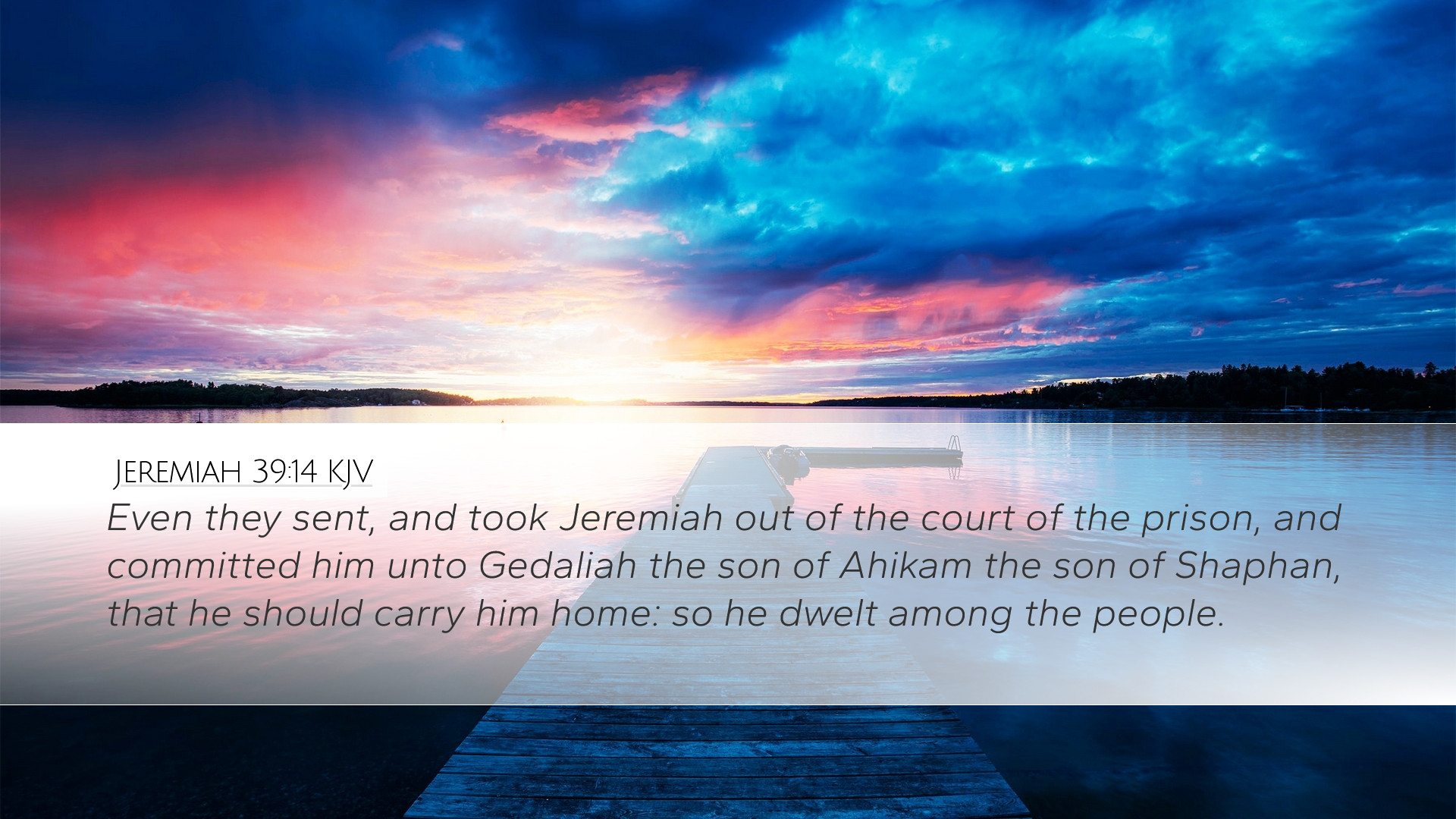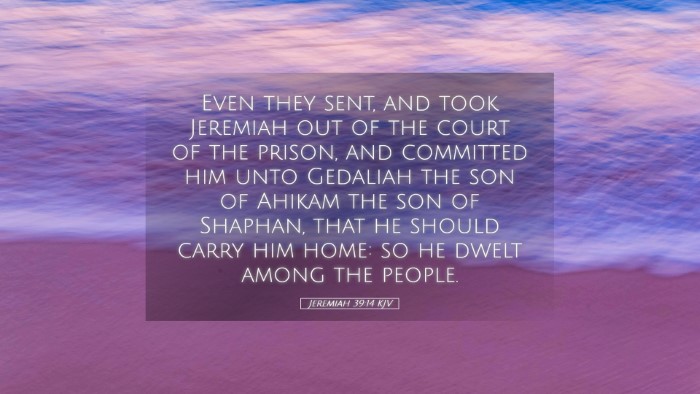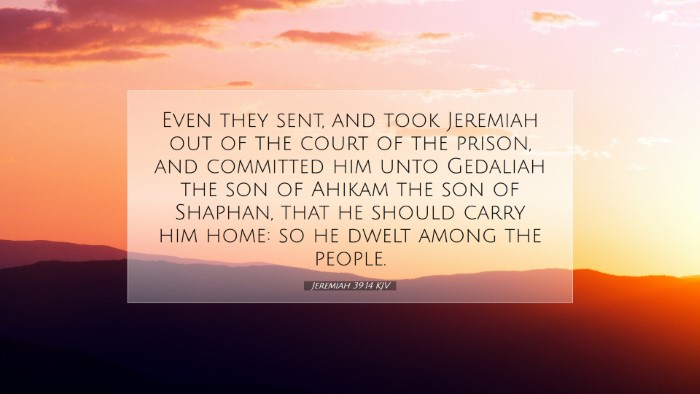Commentary on Jeremiah 39:14
Jeremiah 39:14 states: "They sent and took Jeremiah out of the court of the prison, and committed him unto Gedaliah the son of Ahikam, the son of Shaphan, that he should carry him home: so he dwelt among the people."
This verse is pivotal, denoting not just a physical rescue but also symbolizing God’s providence and the continuation of His prophetic purpose amidst Israel's tribulations.
Contextual Background
Understanding the context of Jeremiah 39:14 requires an awareness of the dire circumstances surrounding Jerusalem's fall to Babylon. The city was besieged, and the people were in anguish. Jeremiah's prior messages had warned them of this impending disaster, yet his prophetic voice was often met with scorn and imprisonment. The events leading to this moment reflect the sovereignty of God in orchestrating the affairs of nations.
Insights from Matthew Henry
Henry's Perspective: Matthew Henry notes that Jeremiah's release from prison indicates a significant shift in God’s dealings with him and the people of Israel. He emphasizes that God's judgments are often coupled with mercy. Henry remarks that even amidst ruin, God provided comfort and hope through Jeremiah's liberation. The act of taking him out of the prison bears witness to God’s faithfulness and care for His servants.
Key Themes
- Divine Intervention: Henry highlights that the act of rescuing Jeremiah was a direct intervention from God, signifying His commitment to His prophet and the message he carried.
- God's Mercy: The punishment of the Jews did not obliterate God’s tender mercies towards His faithful servants, showcasing His grace even in judgment.
Insights from Albert Barnes
Barnes' Commentary: Albert Barnes delves into the role of Gedaliah, suggesting that his appointment to care for Jeremiah parallels the restoration of a remnant of Israel after their devastation. Barnes accentuates how Jeremiah's experience reflects the broader theme of hope amidst despair; even in captivity, God preserves the faithful.
Key Reflections
- Leadership in Crisis: Gedaliah represents the new leadership emerging from the ashes of Jerusalem’s destruction. Barnes points out that God often raises new leaders who can foster healing and restoration.
- The Fate of the Faithful: Jeremiah's transition from prisoner to a revered prophet serves as a metaphor for God’s ultimate plan for redemption. Barnes illustrates that, despite worldly despair, God’s plan continues unfettered.
Insights from Adam Clarke
Clarke's Analysis: Adam Clarke offers a detailed examination of the implications of Jeremiah's freedom. He suggests that this liberation symbolizes the more profound theological truth that God works beyond human understanding, often turning adversity into opportunities for His glory.
Theological Implications
- Symbol of Restoration: Clarke notes that Jeremiah’s transition reflects a broader theological premise—the act of restoration after a period of judgment serves as a reminder of God’s goodness.
- Faithfulness of God: The fact that God ensured Jeremiah's safety, even within the turmoil, illustrates His unwavering commitment. Clarke emphasizes that the divine presence remains constant through trials, urging readers to trust in God's plans.
Theological Reflection for Today's Readers
This commentary on Jeremiah 39:14 is profoundly resonant for contemporary pastors and theologians. The verse itself speaks volumes about the nature of God's faithfulness, His sovereignty in the midst of chaos, and the hope afforded to those who trust in Him.
Implications for Ministry
- Encouragement in Adversity: Just as Jeremiah faced trials, leaders today may also face challenges. This passage reassures us that God can bring about redemption and restoration.
- Hope for the Faithful: The release of Jeremiah portrays a larger theme of hope; it inspires ministers to communicate the reality of hope found in God even when circumstances seem dire.
Application in Context
- For Students and Scholars: Examining the historical context around this verse can yield insights into God’s relational dynamics with His people.
- For Laypeople: Understanding that God values and protects those who stand for truth offers comfort amid societal adversity.
Conclusion
Jeremiah 39:14 serves as a monument of God's faithfulness amid judgment and despair. It provides profound insights applicable to various aspects of life and ministry. The commentaries from Matthew Henry, Albert Barnes, and Adam Clarke illustrate a recurring theme—God’s ability to transform despair into hope. Pastors, students, and theologians alike can draw strength from this passage, knowing that divine providence works even in our darkest hours.


